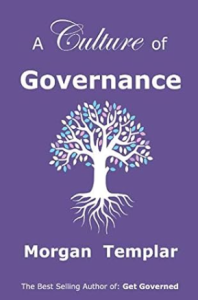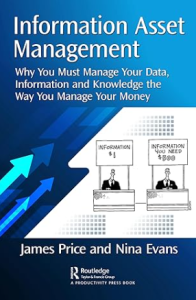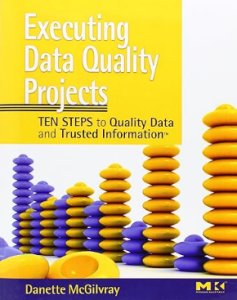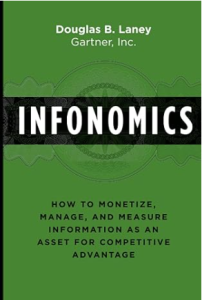
A Culture of Governance
ABOUT this book Morgan Templar teaches her GOVERN method, six simple principles to help you GOVERN to greatness. The design and implementation of a governance
We have curated a list of books and articles (many written by our Leaders) that we think will help organizations deliberately manage data and information with the same accountability as other assets promotes the LDO’s overall vision to make The Leader’s Data Manifesto a reality.
Data management is not “intuitive” – it requires understanding the relationship between an organization’s data and its ability to carry out its work successfully. The books and articles we promote will contribute to a higher level of knowledge about data in organizations.
The conversation around books is likely to connect to real problems that real people in our field are grappling with. This can help us understand these challenges better and can help us see ways in which we can lead the change.

ABOUT this book Morgan Templar teaches her GOVERN method, six simple principles to help you GOVERN to greatness. The design and implementation of a governance

The world of business has long sought a comprehensive, practical guide to managing and executing business marketing plans and strategies. And now it’s here. B2B

Data-gathering technology is more sophisticated than ever, as are the ethical standards for using this data. This second edition shows how to navigate this complex

Data Governance, Second Edition, is for any executive, manager or data professional who needs to understand or implement a data governance program. It is required to ensure consistent, accurate and reliable data across their organization. This book offers an overview of why data governance is needed, how to design, initiate, and execute a program and how to keep the program sustainable. This valuable resource provides comprehensive guidance to beginning professionals, managers or analysts looking to improve their processes, and advanced students in Data Management and related courses. With the provided framework and case studies all professionals in the data governance field will gain key insights into launching successful and money-saving data governance program.

Organisations are using data, information and knowledge as a competitive weapon. Their data, information and knowledge are arguably their most valuable assets. Yet, this fourth

Can any subject inspire less excitement than “data quality”? Yet a moment’s thought reveals the ever-growing importance of quality data. From restated corporate earnings, to

Information and how we manage, process and govern it is becoming increasingly important as organizations ride the wave of the big data revolution. Ethical Data

Executing Data Quality Projects, Second Edition presents a structured yet flexible approach for creating, improving, sustaining and managing the quality of data and information within

ABOUT this book “Get Governed” is the textbook for data governance professionals. Templar delivers complex information in an approachable style while offering the most accurate

This book lays out the roles everyone, up and down the organization chart, can and must play to ensure that data is up to the

Many senior executives talk about information as one of their most important assets, but few behave as if it is. They report to the board

Organisations are using data, information and knowledge as a competitive weapon. Their data, information and knowledge are arguably their most valuable assets. Yet, this fourth

As a business person, you have more data and more kinds of data available to you than ever before. But has it helped you generate

The Data Quality Assessment Framework shows you how to measure and monitor data quality, ensuring quality over time. You’ll start with general concepts of measurement

Meeting the Challenges of Data Quality Management outlines the foundational concepts of data quality management and its challenges. The book enables data management professionals to

Organizations that want to get value from their data need to manage that data well. But to most executives, data management seems obscure, complicated, and

In Data & Reality, William Kent explores how we, people, make data, through a set of choices about what to represent and how to represent it. Written in the late 1970s, the book’s observations are even more important in the 21st century, as we are flooded with new and sometimes highly questionable forms of data.

In “Good to Great” Collins researches why a few organisations outperform the market by a significant margin. The fundamental reason is cultural – the right people on the bus with a very clear vision of the destination.

Hubbard takes a concept that many find challenging, how to quantify, and turns it on its side: any measurement is, at its simplest, a comparison.
So measuring anything amounts to figuring out the appropriate comparisons and using them to learn more about the thing you want to measure. His choice to simplify the concept creates a new perspective that simplifies measurement and also shows the risks of failing to understand the assumptions built into measurement.

Perez assesses everyday situations through the lens of gender bias and reveals a set of challenges and indignities (the size of i-phones, the design of automobiles) that many women are aware of but that most men do not notice, because they do not have to be. She then uses this lens to demonstrate how assumptions about gender influence what data we collect, why we collect it, and how we interpret its meaning. In the face of claims about the value of artificial intelligence, this book gives one a reason to pause and reevaluate the risks associated with allowing machines to take biased human thinking to its logical conclusions.

Davies, a physicist and cosmologist, has written an astonishing book about information and the role it plays in every level of our existence from the molecular level to the universal one.
Two things fascinate me:
firstly, the enormity of Davies’ thought and,
secondly, that we struggle to manage the information just in our own organisations.
© dataleaders.org